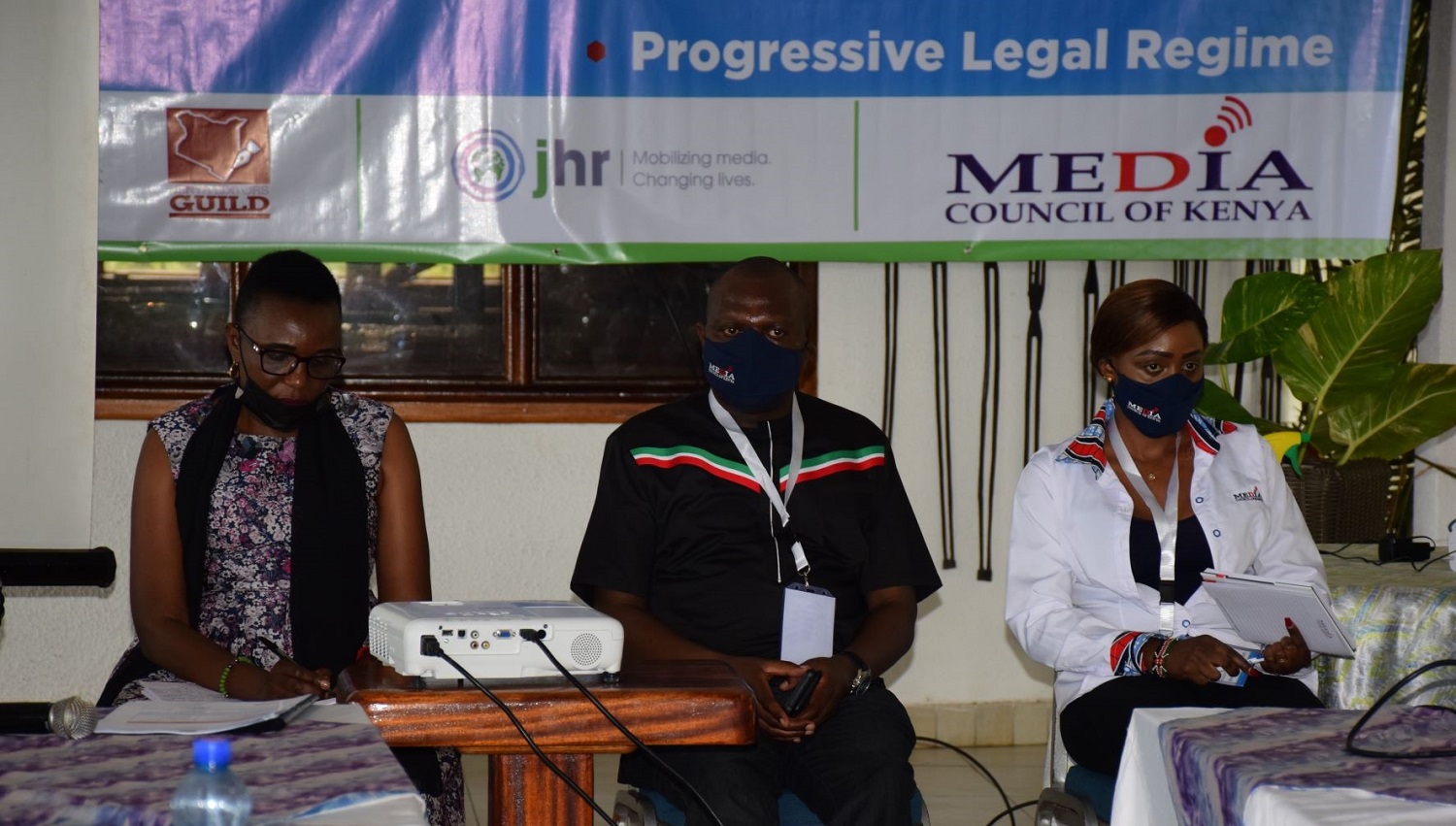
The Council convened the Kenya Media Sector Working Group to discuss key media industry matters in a bid to influence policy on media sustainability. The meeting held in Diani, Kwale County brought together players in Kenya’s media space and heads of Kenya’s key governance institutions namely the Independent Electoral and Boundaries Commission (IEBC), the Ethics and Anti-Corruption Commission (EACC) and the Office of the Director of Public Prosecutions (ODPP).
Discussions at the meeting focused on media sustainability, human resource and capacity building, media support, safety of journalists and policy and legal reforms. Other industry-related issues discussed included the geopolitical and organisational transformation of the media landscape, media regulation, elections, sexual harassment in the media and the programming code for broadcasters in Kenya.
Media Council CEO Mr David Omwoyo who spoke during a session titled: Media Regulation and accreditation in the 21st Century; Does Kenya need more or less? called for a comprehensive review of laws governing media regulation to align media operations in the country. He emphasis that only those qualified to perform roles as journalists should enjoy the privileges that come with the Constitutional provisions around media work.
He added that regulation does not exist to take away the rights and privileges of journalists, but it simply defines boundaries within which they can enjoy the two.
“Media work in Kenya must at all times be guided by the Code of Conduct for the Practice of Journalism as enshrined in the Media Council Act of 2013. This ultimately ensures that regulatory requirements are met by the media”, he said.
The CEO also spoke about protection of journalist’s rights and advised any parties aggrieved by media coverage to present their cases to the Media Complaints Commission before going to court.
“No journalist should be taken to court before the Media Complaints Commission hears any complaints against the media. This is the work of the Media Complaints Commission”, he said.
On elections readiness, the CEO affirmed that the Council will work with stakeholders to ensure the media is sufficiently prepared to report on electoral and governance processes.
Council Member Ms Roselyne Obala who was part of the panel termed the co-regulation model in Kenya as the best as it enhances internal checks on media operations, where accreditation is key. She commended the role of accreditation in the regulation process, saying it ensures a database of legitimate media practitioners in Kenya and to weed out quacks, “thus ensuring that we remain true to the profession”.
Speakers at the event called for comprehensive engagement of the media in the electoral processes, in order to assure the country of credible elections.
IEBC Chairman Mr Wafula Chebukati affirmed the Commission’s commitment to work with the media. “IEBC will work with the media to enhance the transparency of electoral processes and ensure accountability and credibility of election results from polling stations”, he said.
EACC boss Mr Twalib Mbarak urged the media to contribute to vetting of candidates for various positions as elections approach.